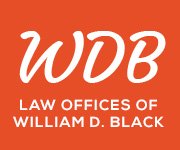Phoenix Lack of Testamentary Capacity Attorney
Validity of a Will
Testamentary capacity is the legal term in Arizona for the mental capacity necessary to establish a valid will. To determine whether a deceased person was of sound mind at the time he or she executed his or her will, three criteria are used: 1) The person understands that he or she is making a will, 2) He or she understands the nature and character of his or her property, and 3) He or she is able to recollect the relationship of the natural objects of his or her bounty to those who naturally would have some claim to his or her remembrance. One of the most important rules, and often the most difficult for contestants to overcome, is the concept that evidence of lack of testamentary capacity or evidence of undue influence must relate to the exact time the will was executed, not minutes before or minutes after, but at the exact instant the will was made.
Lack of testamentary capacity is only one basis upon which a will might be declared invalid. Others would be failure to adhere to Arizona legal requirements for executing the will or a claim that the testator has been subject to duress, undue influence or fraud. In other instances, the will under consideration may appear to be valid, but a later will may have been executed, the terms of which supersede the will being presented for probate.
Since the founding of The Law Offices of William D. Black in 1979, Scottsdale attorney William D. Black has handled numerous probate litigation cases involving the need to prove the testamentary capacity or lack of capacity of the testator. We have the experience and the resources to represent you in a will contest or other types of probate litigation that require us to establish testamentary capacity or the possible lack thereof. We review medical records, use forensic medical and psychological experts and interview witnesses and neighbors. All of these steps allow us to present your case in its best light.
Contact William D. Black for A Free Initial Consultation
We offer a free initial consultation. If you are facing a probate or trust dispute involving claimed lack of testamentary capacity, we can evaluate your case and help you understand the legal process you are facing. We can also make sure you understand your rights and options. Call us at 602 265-2600.
Issues Involved With Proof Or Disproof of Testamentary Capacity
With more than 25 years of experience in probate litigation, we are well-versed in the most important aspects of evaluating testamentary capacity issues in probate proceedings:
- Proving lack of testamentary capacity: We have assisted people in situations involving Alzheimer’s, dementia, strokes and other illnesses affecting cognitive ability, failure to recognize predatory caregivers or neighbors, paranoia, schizophrenia and neglectful or uncaring adult children. It is not always easy to establish testamentary capacity or lack thereof after the fact. We work with a team of experts whenever necessary to help us in our evaluations. We have exceptional experience in this area to ensure that the testator’s intentions are fully executed.
- Elder exploitation: An elderly testator who lacks mental capacity is extremely vulnerable to exploitation. This exploitation often comes in the form of undue influence. Frail elderly people are often susceptible to financial abuse and exploitation. Arizona has special laws to provide the elderly with greater protections. We vigorously pursue cases of financial elder abuse.
- Undue influence: Undue influence consists of exerting sufficient influence over the testator to overcome his or her free agency. It can include coercive threats or more subtle forms of emotional and psychological manipulation.
Main Office - Kierland Corporate Center
7047 East Greenway Parkway, Ste. 250
Scottsdale, AZ 85254




